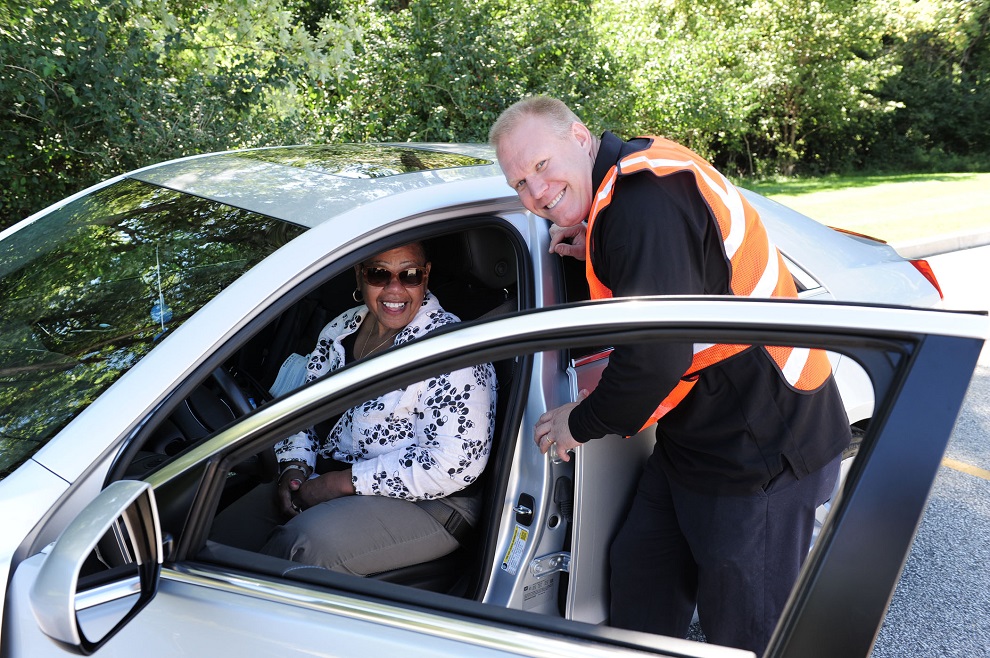3 Ways to Talk to a Loved One Who May Need a Driving Evaluation

Pointing out flaws to a loved one is never easy, but if it’s for safety purposes, it’s worth it – especially if you’ve noticed he or she is struggling behind the wheel.
Lesa Saunders, an occupational therapist with TriHealth Rehabilitation and Physical Therapy, explains how to broach the subject if you think your loved one needs a driver’s evaluation.
#1: Remind Your Loved One You Want to Keep Him or Her Safe
“I really take a safety approach to this,” Lesa explains. “I say, ‘I want to keep you safe. I want to keep other people on the road safe.’”
Most people respond fairly well when the topic is addressed in that nature, she suggests.
#2: Remind He or She This isn't an Automatic Driving Disqualification
Having a driver’s evaluation does not mean the participant will automatically have his or her license taken away. If someone doesn’t pass the test, Lesa works with him or her to determine potential options, whether it's simply practicing driving in an empty parking lot or something more involved, like physical therapy.
There’s also equipment available, including steering wheels that take less energy to turn, hand controls, or a left-foot break for someone who’s had his or her right foot amputated, for example.
The key is to have this talk with your loved one sooner, rather than later, so there’s still time to make these changes, so he or she can stay on the road longer.
#3: Take Advantage of Natural Opportunities to Discuss the Topic
If your loved one recently switched medications or is coming off an illness or injury, it's important to make sure your loved one's doctor addresses how this will affect his or her driving ability. “Any medication that makes someone overly lethargic or makes them lose their balance is going to affect their reaction time for driving,” Lesa points out.
Depending on the severity of the illness or injury, or how long they’ve been off the road, it could just be a matter of practicing off hours in a parking lot.
In some cases, your loved one may even want to have a driver’s evaluation simply to prove they’re okay. “You don’t have to have a doctor’s order or anything. Lots of times, the drivers themselves are just tired of people commenting on their driving and they just want to prove they can do it,” Lesa says.